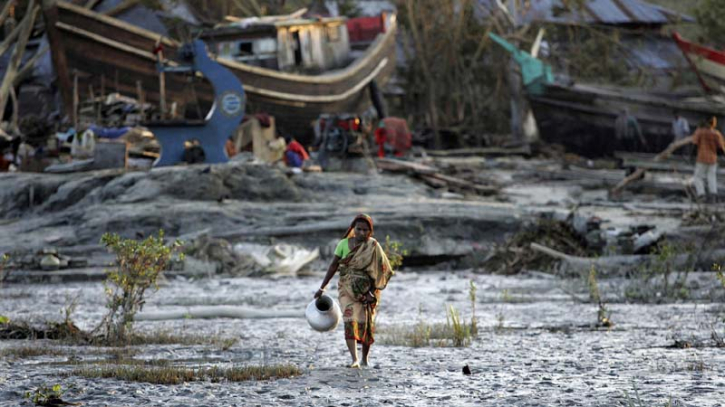Climate crisis heightens cancer risk in Bangladesh due to contaminated well water: Study

A recent study published in the scientific journal PLOS and reported by The Guardian warns that the climate crisis is poised to increase the cancer risk for tens of millions of people in Bangladesh.
The research, led by Dr. Seth Frisbie, an emeritus professor of chemistry at Norwich University, reveals that chronic arsenic poisoning from contaminated well water is a significant and real threat to public health in the country.
The lead researcher emphasized the tangible impact of the issue, stating, 'Chronic arsenic poisoning from drinking water… is a real problem, not a theoretical exercise.'
The study highlights that rising sea levels, unpredictable flooding, and extreme weather events linked to climate change will accelerate the release of dangerous levels of arsenic into Bangladesh's drinking water. This, in turn, will intensify the existing public health crisis in the country, where millions are already grappling with skin, bladder, and lung cancers as a result of arsenic poisoning.
The roots of the arsenic water contamination crisis trace back to the 1970s when Bangladesh faced high infant mortality rates due to polluted surface water. In response, UN aid agencies and NGOs implemented a widespread program of deep tube wells to provide clean water. While these wells initially reduced child mortality rates by preventing waterborne diseases, by the 1990s, it became apparent that water from sedimentary rocks beneath Bangladesh contained high levels of naturally occurring arsenic.
The first case of chronic arsenic poisoning from well water was diagnosed in 1993, leading the WHO to describe it as the "largest mass poisoning of a population in history." Currently, approximately 49% of areas have drinking water exceeding the WHO limit of 10 parts per billion, with 45% containing water with at least five times that amount.
During fieldwork, Frisbie discovered wells with arsenic concentrations as high as 448 parts per billion. He estimates that around 78 million Bangladeshis are currently exposed, and conservatively predicts that about 900,000 people in the country are expected to succumb to lung and bladder cancer due to arsenic poisoning.
The study emphasizes that climate breakdown exacerbates the problem, with rising sea levels disproportionately affecting Bangladesh. This, in turn, alters the chemistry of the underlying aquifer, leading to increased leaching of arsenic. The rising salinity from seawater intrusion further amplifies arsenic leaching, contributing to what the researchers term "the salt effect."
The implications of these changes in aquifer chemistry extend beyond Bangladesh, impacting regions worldwide as climate breakdown alters the fundamental characteristics of aquifer water.
.png)









